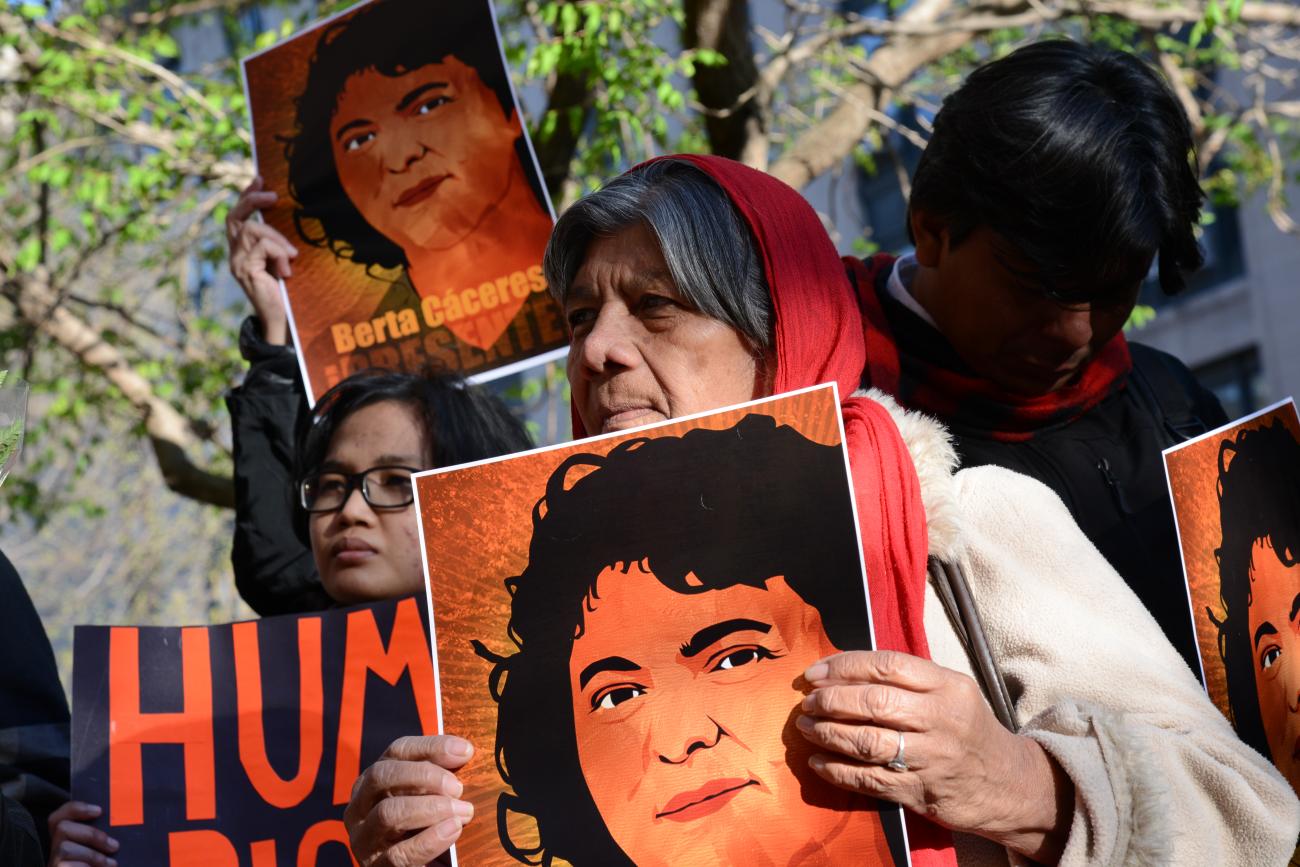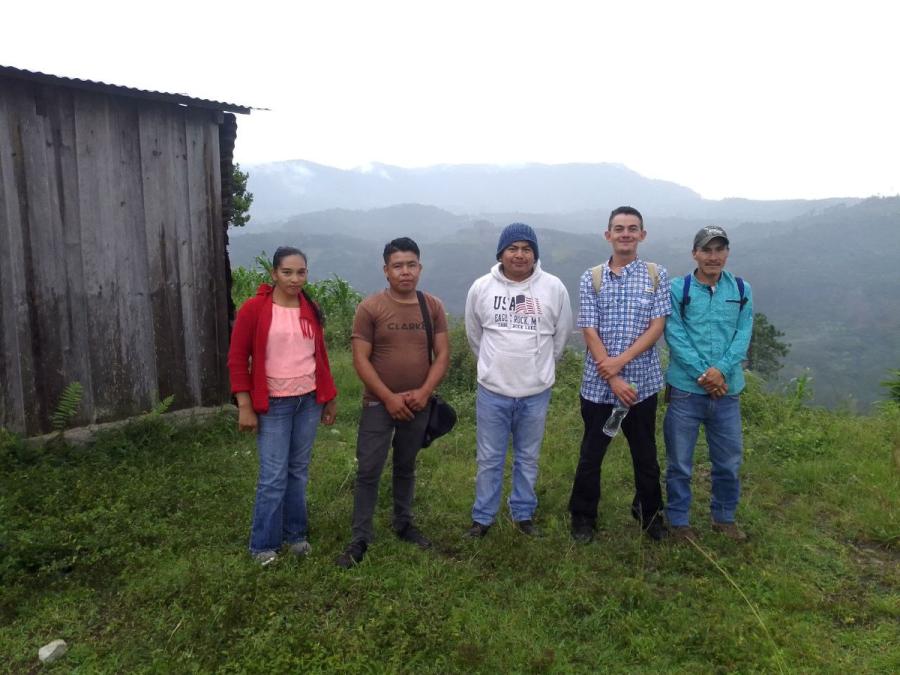
Photo from Comisión Interamericana de Derechos Humanos Credit: Daniel Cima/CIDH
By Elise Czuchna
On July 6, 2017, two of the banks financing the Agua Zarca hydroelectric dam construction in Honduras pulled their funding for the project. The European development banks, namely The Netherlands Development Finance Institution and the Finnish Fund for Industrial Cooperation, had been conducting an international and regional study for many months in order to determine whether or not to withdraw their support. On July 6th, they finalized their decision to cease support, and ultimately concluded that local officials and peoples of Honduras should be the ones to decide how the project continues. The banks said they halted their involvement in the the controversial dam in response to the attacks against local activists opposing its construction, including the murder of Berta Cáceres.
Berta Cáceres was a well known Honduran Indigenous leader who had dedicated herself to the protection of the land of the Lenca people, including the Gualcarque River, upon which the Agua Zarca Dam was being planned. She had served as the coordinator of the Commission of Indigenous Peoples of Honduras (COPINH) and was also a member of the coordinating team of the National Platform of Social and Popular Movements of Honduras (PMSPH). Cáceres had been an extremely influential leader amongst the Indigenous Peoples of Honduras and around the globe, and was the recipient of the Goldman Environmental Prize.
As a result of her work in opposition to the Agua Zarca dam, however, Berta Cáceres received numerous threats against her life. Regardless, she remained committed to the protection of her community, and refused to allow those threats to prevent her from continuing her work. In the early morning of March 3rd, 2016, attackers entered the home of Berta Cáceres, located in La Esperanza, Intibucá, Honduras, and ended her life. However, Cáceres’ murder was not an isolated incident. Two weeks after her death, COPINH activist, Nelson Garcia, was also murdered, and in July of the same year, the body of another activist of the organization, Lesbia Janeth Urquia, was found.
This violence against those resisting the Agua Zarca dam continues to this day. On June 30th, 2017, 26-year-old Bertha Zúniga Cáceres, daughter of Berta Cáceres, was attacked by a group of men with machetes. Bertha, along with two other COPINH members, Sotero Chavarría and Asunción Martínez, were returning from a community visit in central Honduras when the ambush occurred. The three were forced to stop driving when a black pickup truck blocked the road and three men emerged from the truck with the machetes. Bertha and her companions were ultimately able to escape the assailants, though just barely.
According to Bertha, she and her companions were travelling in a vehicle owned by COPINH that was easily recognizable as being the property of the organization. She commented: “We believe that the attack had to do with a conflict over water and water sources in the region.” The attack came just two weeks after Bertha had been named the new leader of COPINH, and, for her, this process most likely contributed to the ambush.
In an interview with Democracy Now, she noted: “I think that the COPINH assembly process, which we just had, is a process that not only names the new leadership of the organization, but it’s also a process that has reorganized and has strengthened the communities that make up COPINH, as well as our work. And so, obviously, the strengthening of the organization and of the communities is something that the economic and political powers that don’t like our work are obviously concerned about, and so that could very much have to relate to this attack.”
Despite the constant threats, Bertha Zúniga Cáceres and all those involved in the movement against the Agua Zarca dam continue their work steadfastly. For Bertha, the construction of the dam is a matter of life and death. “We consider this project to be a project of death and murder and destruction,” she contended, and it is true that the Agua Zarca dam would have a variety of negative impacts on the Indigenous Peoples of Honduras. Most notably, the dam would result in the mass clearing of forests, causing the destruction of crops and the displacement of communities, in addition to the damming of the Gualcarque River, one of the most important rivers for the Lenca people. The river is not only necessary for the well-being of the Lenca people, using it as a drinking source and a watering source for crops, but it holds significant spiritual importance for these peoples and has done so for thousands of years. It was this destruction of livelihood that was the driving force behind the activism led by Berta Cáceres, her work resulting in the largest contractor of the dam, Sinohydro, withdrawing their involvement in the project. Now, these efforts are led by her daughter, Bertha Zúniga Cáceres, continuing the empowerment of Indigenous Peoples and community members of Honduras.
Today COPINH and other activists are working together in order to protect Mother Earth, as well as bring justice for those whose lives have been lost as a result of their activism. In the United States, a group of congressmembers have been working to suspend the military aid that the U.S. is providing to Honduras in order to press the Honduran government to take the necessary measures in addressing the human rights violations taking place in the country. Specifically, in June of 2016, Congress member Hank Johnson of Georgia introduced the Berta Cáceres Human Rights in Honduras Act, that demands the suspension of funds for Honduran police and military operations until the country had conducted a thorough investigation of Berta Cáceres’ murder, along with the murders of all other activists. In an interview, Representative Johnson explained: “[The bill] would suspend U.S. financial assistance to Honduras for those purposes until such time as the republic of Honduras can demonstrate that it has adequately and transparently investigated and taken action on the many killings, unlawful and extrajudicial killings, of human rights activists, environmental activists, LGBT activists, human rights defenders in Honduras.” The bill is meant to address the corrupt police and military forces in Honduras that are allowing the crimes against activists like Berta Cáceres to go unpunished. Honduras has received international attention for the injustices being committed.
“We want our children to breathe clean air for generations to come. We want to have rivers. We don’t just want to wash our clothes. We also want to be able to drink the water, to be able to have water in our homes. That is the struggle we are fighting. For that, they kill us. For that, they killed Berta Cáceres.”
-Miriam Miranda, leader of Black Fraternal Order of Honduras (OFRANEH)

